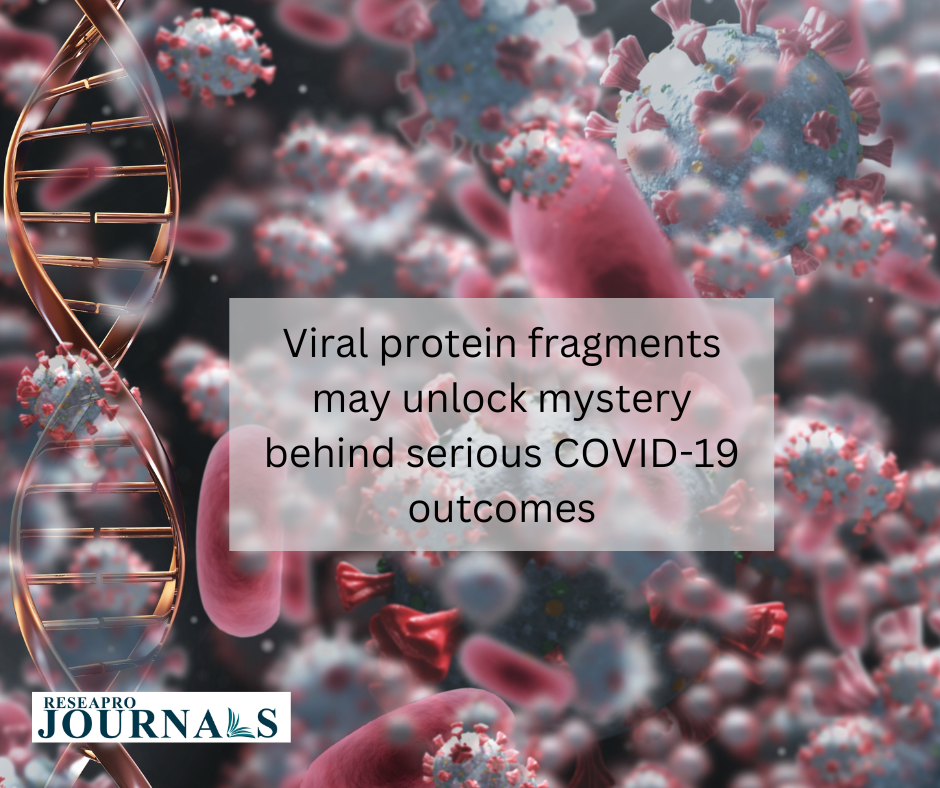|
Getting your Trinity Audio player ready...
|
 For nearly three years, COVID-19 has cast a long shadow, its unpredictable severity leaving a trail of confusion and unanswered questions. While some individuals brush off the virus with barely a cough, others grapple with life-threatening complications like cytokine storms and blood clots. Initially, the fight against COVID-19 seemed straightforward – a clear-cut battle between an intact virus and our defenses. However, the reality is far more complex. Researchers are now shedding light on how the body often dismantles the virus, leaving behind fragments of its proteins. These seemingly innocuous remnants, dubbed “zombie” complexes due to their ability to reassemble and mimic human immune molecules, can trigger a dangerous chain reaction.
For nearly three years, COVID-19 has cast a long shadow, its unpredictable severity leaving a trail of confusion and unanswered questions. While some individuals brush off the virus with barely a cough, others grapple with life-threatening complications like cytokine storms and blood clots. Initially, the fight against COVID-19 seemed straightforward – a clear-cut battle between an intact virus and our defenses. However, the reality is far more complex. Researchers are now shedding light on how the body often dismantles the virus, leaving behind fragments of its proteins. These seemingly innocuous remnants, dubbed “zombie” complexes due to their ability to reassemble and mimic human immune molecules, can trigger a dangerous chain reaction.
Imagine these fragments as molecular imposters, infiltrating our immune system’s inner sanctum. By mimicking essential signaling molecules, they trick our defenses into overreacting, leading to a runaway inflammatory response. This hyperactivation, known as a cytokine storm, can damage healthy tissues and organs, explaining the devastating complications observed in severe cases.
The research uncovering this mechanism utilized a powerful artificial intelligence and gene expression analysis arsenal. By meticulously studying how cells reacted to viral fragments, scientists observed a striking resemblance to autoimmune conditions like lupus and rheumatoid arthritis, further solidifying the link between “zombie” proteins and the diverse manifestations of severe COVID-19.
This revelation carries immense potential. It could pave the way for targeted therapies designed to neutralize these rogue protein fragments if validated and further explored. Additionally, identifying individuals susceptible to their effects could enable preventative measures and personalized treatment strategies.
However, the path forward is not without its obstacles. Further research is crucial to validate these findings across diverse populations and address potential limitations. Additionally, ethical considerations regarding patient privacy and informed consent must be carefully navigated.
Despite these challenges, the discovery of “zombie” protein fragments offers a beacon of hope in the fight against COVID-19. By providing a potential unifying explanation for severe outcomes, it empowers researchers to develop more effective interventions and treatment strategies. This newfound understanding serves as a testament to the relentless pursuit of knowledge, reminding us that even amidst the shadows of a pandemic, scientific breakthroughs can illuminate the path towards a healthier future.



